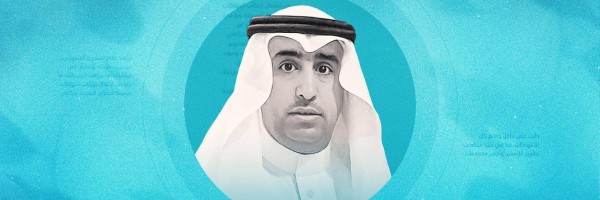The Saudi authorities continue to clamp down on social media and wage war on freedom of expression as if it were an act of terrorism. They continue to associate the peaceful expression of opinions with violence, and also to link demands for reform, or the defence of human rights, with violence, as we explain in detail in our report “War on Terror, or War on Freedom?”
Under the Counterterrorism Law of January 2014, virtually all forms of peaceful expression are criminal acts. The authorities persistent put people who peacefully express their views on trial in the Specialised Criminal Court, the court set up to handle terrorism cases, in a blatant conflation of freedom of expression with violence. The object of linking peaceful opposition with violence is clearly to scare people away from peaceful opposition, and to drive some toward violence in order to justify systematic crackdowns.
From April 2014, a number of Saudi men and women took part in an uncoordinated Twitter campaign later known by Arabic hashtags meaning #thepeoplehavetheirsay and #idcards_revolution because of its spontaneity, the range of ideas expressed, and the way several participants displayed their ID cards on video, as evidence of their frustration and despair over the current situation.
The Saudi authorities tracked down the participants, and no more was heard of most them. In the majority of cases there has still been no news them more than two years later, and ALQST has been unable to ascertain their fate. Two are outside the country; some have been referred to the Specialised Criminal Court; one was released from prison and subsequently jailed again. One — Abdullah bin Mabrouk Uthman al-Ghamdi — is known to have been released, and Jaber bin Saleh Hamdan Al Sulaiman al-Amri is known to have been tried and sentenced to seven years in jail, a seven-year travel ban and a fine of 50,000 rials (£9,120 / $13,330).
Meanwhile, we have no firm information concerning the fate of the following: Abdulaziz Mohammed Fahad al-Dosari, Mut‘ib al-Shammari, Ma‘adh Mohammed al-Jahni, Ghali bin Nawar al-Hadhli, Ali al-Jahni, Majed al-Asmari, Yousef al-Mutairi, Mohammed al-Shammari, Musfir al-Khath‘ami, Hamed al-Hadhli, Shima al-Malki, Saba al-Assiri, Fatima al-Obaidi al-Qahtani, Aljazi bint Sitam al-Onzi, Riyadh al-Assiri, Mohammed Al Eidan, Abdulkarim al-Balwi, and Saoud Marda Abdullah al-Harbi. We know this last man was arrested after taking part in the campaign, as this was confirmed by his brother Wafi Marda Abdullah al-Harbi, who was them himself arrested for posting a video confirming his brother’s arrest.
We do have information about Jaber bin Saleh Hamdan Al Sulaiman al-Amri’s trial. His post in the #thepeoplehavetheirsay campaign was a call for his brother to be let out of jail, after his sentence had expired without his being released. Al-Amri filmed himself next to his sick father, who had had only Jaber to support him for over 10 years after his brother was detained.
Jaber al-Amri, 40, is married with three children. He was arrested on April 12, 2014 as he was going out to visit his father in hospital. Armed officers forced him back into his house and handcuffed him in front of his family. They then took him to the General Security prison in Riyadh, where he was interrogated and held for nearly a month, after which he was transferred to Criminal Investigation and detained there until June 21, 2014. After that he was moved to al-Malaz prison, where he remained until July 30, 2015 before being transferred once more to the correctional facility at al-Ha’ir prison, and finally to Riyadh Correctional on August 15, 2015.
In May 2015 Jaber al-Amri was sentenced in a secret trial held at the Specialised Criminal Court to seven years in prison followed by a seven-year travel ban, and a fine of 50,000 rials. The main charges against him were:
- Inciting rebellion against the ruler; stirring up dissent; and turning people against the state, rejecting its authority and calling it repressive; and
- Producing, storing and sending a video clip prejudicial to public order.
Al-Amri was not allowed to be represented by a lawyer, and did not have access to a lawyer at any point from the beginning of his interrogation to the handing down of his sentence. Nor was anyone permitted to attend the trial, which was held in complete secrecy and fell far short of the standards required for a fair trial.
ALQST calls on the Saudi authorities to make a total distinction between violence and the free expression of opinions, and calls on them further to avoid provoking the country’s frustrated youth, and driving them toward violence, by criminalising their civil actions and peaceful protests.
We also call for more pressure to be brought to bear on the Saudi authorities to end their war on freedom of expression, to stop confusing peaceful demands with violence, and to desist from exploiting and indeed fabricating security issues to carry out further oppression of Saudi society.
We call too for immediate disclosure of the fate of everyone who took part in the #idcards_revolution campaign.
All charges against Jaber al-Amri should be dropped, and he should be immediately and unconditionally released, as he has been sentenced for peaceful, legitimate acts in an unlawful court, without a lawyer, in a secret trial lacking all elements of justice.




